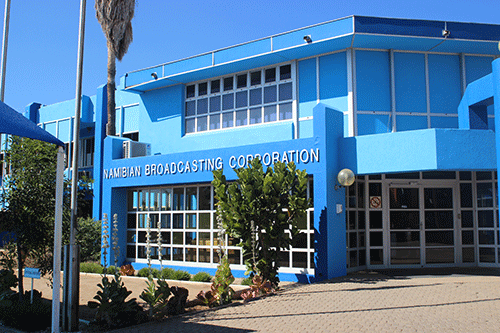An investigation by the Namibia Competition Commission (NaCC) has concluded that the Namibian Broadcasting Corporation (NBC) infringed on certain parts of the Competition Act by limiting or restricting market outlets or market access.
However, despite NBC transgressing on Section 26(1), read with Section 26(2)(b) of the Competition Act, based on NBC’s unilateral conduct to remove other free-to-air broadcasters from the DTT Network, the NaCC has not yet made a final decision on the matter.
Following its investigation, the Commission has instead decided to give NBC 30 days within which to make written or oral submissions.
According to a NaCC statement, the Namibian DTT Policy guidelines designate NBC as the common carrier for the DTT Network and furthermore impose an obligation on NBC to perform its common carrier powers in a “fair, equitable, reasonable, non-preferential and non-discriminatory basis.’’
The policy guidelines further provide that NBC should provide multiplexing and signal distribution services on a fair, equitable, reasonable, non-preferential and non-discriminatory basis to any and all broadcasting licensees who request for such services.
“The fact that the DTT Policy Guidelines impose the aforementioned provisions on NBC’s common carrier powers is clear evidence that the DTT infrastructure is essential for other market participants to access the relevant market,” the NaCC stated.
The Commission added that based on its own analysis, conducted using information obtained from NBC, the amount that the NBC demanded is unreasonable, unjustified and as such, the NBC, by removing OATV and TBN from the DTT platform for failure to pay that amount, has therefore abused its dominant position.
This, the NBC did by limiting or restricting market outlets or market access, investment, technical development or technological progress as envisaged in terms of section 26(1), read with section 26(2)(b) of the Competition Act.
In September 2019, as part of its cost-cutting measures, NBC suspended the broadcast of One Africa Television (OATV) on the NBC DTT Network for failure to pay a “flat annual carriage fee”. According to OATV, NBC did not provide any reasons why and how removing OATV from the multiplex will result in savings for NBC.
“The denial of access to other broadcasters also reduces the choice of consumers and constrained potential advertisers in respect of the choice of broadcasters they could use to market their products and services. It also constrains them from generating additional revenue from additional viewers of channels of other broadcasters. Furthermore, NBC rivals would potentially be constrained from making better returns on their investments as broadcasters in the market,” the NaCC stated.
However, the Commission emphasised that regardless of its effects, the suspension of other broadcasters, in itself, is not the main issue in the matter, particularly if those granted access failed to pay for it.
“The policy is clear that NBC can impose a reasonable fee for granting access to the DTT platform. The issue is the fact that NBC imposed an amount which is deemed to be unreasonable, and used the failure to pay that amount as a basis of suspending other broadcasters. The focus was therefore to determine whether such an amount is justified or not, and whether the suspension was thus justified,” the NaCC stated.


